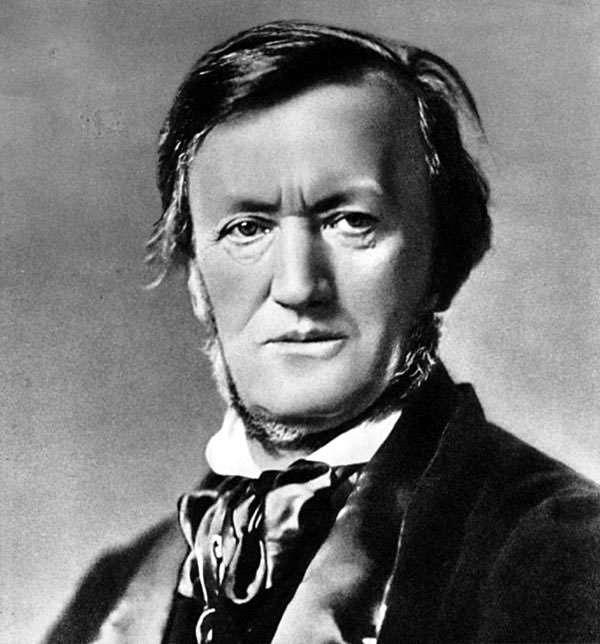This Week in Classical Music: May 20, 2024. Wagner and Lighter Things.Richard Wagner’s 211th anniversary is on May 22nd: he was born in Leipzig in 1813.Wagner’s music is still so fresh (and often so controversial) that it feels strange that he was only two years younger than his stepfather, Franz Liszt, and three years younger than Frédéric Chopin and Robert Schumann, whose places in the pantheon of European music have been established a long time ago.Hitler’s love for his music didn’t help Wagner’s reputation, and neither did the composer’s abhorrent antisemitism.But if we put the non-musical considerations aside (and we recognize that it’s easier said than done), what we have is a musical genius, well ahead of his contemporaries, a composer whose music influenced generations of musicians all over the world, sometimes in very unexpected ways (think, for example, of the orchestral works of Claude Debussy, who had a love-hate relationship with Wagner).
Liebestod, or Love Death in German, is the final music of Wagner’s opera Tristan und Isolde, and one of his best-known pieces.In it, Isolde sings over Tristan’s dead body.It’s a difficult piece, especially considering it comes at the end of an almost five-hour opera.In our library we have three recordings of this scene, with Kirsten Flagstad, Birgit Nilsson and Waltraud Meier; all three were leading Wagnerian sopranos of their generation.We like all three, but Flagstad’s probably the most, even though the recording quality is not great.Here it is, from 1936, with Fritz Reiner conducting the orchestra of the Royal Opera House (Covent Garden).
On a much lighter note is the anniversary of Jean Françaix, whose music was sunny, witty and sophisticated.Françaix was born on May 23rd of 1912 in Le Mans.His musical gifts were obvious from an early age.He studied in Le Mans and then at the Paris Conservatory.He also took lessons with Nadia Boulanger, who considered him one of her most talented pupils, a praise of the highest order considering the many talented musicians who studied with her.Here’s Jean Françaix’s Concertino for Piano and Orchestra.The soloist is Claude Françaix, the composer’s daughter.The London Symphony Orchestra is conducted by Antal Dorati.
Richard Wagner and Lighter Fare
This Week in Classical Music: May 20, 2024. Wagner and Lighter Things. Richard Wagner’s 211th anniversary is on May 22nd: he was born in Leipzig in 1813. Wagner’s music is still so fresh (and often so controversial) that it feels strange that he was only two years younger than his stepfather, Franz Liszt, and three years younger than Frédéric Chopin and Robert Schumann, whose places in the pantheon of European music have been established a long time ago. Hitler’s love for his music didn’t help Wagner’s reputation, and neither did the composer’s abhorrent antisemitism. But if we put the non-musical considerations aside (and we recognize that it’s easier said than done), what we have is a musical genius, well ahead of his contemporaries, a composer whose music influenced generations of musicians all over the world, sometimes in very unexpected ways (think, for example, of the orchestral works of Claude Debussy, who had a love-hate relationship with Wagner).
still so fresh (and often so controversial) that it feels strange that he was only two years younger than his stepfather, Franz Liszt, and three years younger than Frédéric Chopin and Robert Schumann, whose places in the pantheon of European music have been established a long time ago. Hitler’s love for his music didn’t help Wagner’s reputation, and neither did the composer’s abhorrent antisemitism. But if we put the non-musical considerations aside (and we recognize that it’s easier said than done), what we have is a musical genius, well ahead of his contemporaries, a composer whose music influenced generations of musicians all over the world, sometimes in very unexpected ways (think, for example, of the orchestral works of Claude Debussy, who had a love-hate relationship with Wagner).
Liebestod, or Love Death in German, is the final music of Wagner’s opera Tristan und Isolde, and one of his best-known pieces. In it, Isolde sings over Tristan’s dead body. It’s a difficult piece, especially considering it comes at the end of an almost five-hour opera. In our library we have three recordings of this scene, with Kirsten Flagstad, Birgit Nilsson and Waltraud Meier; all three were leading Wagnerian sopranos of their generation. We like all three, but Flagstad’s probably the most, even though the recording quality is not great. Here it is, from 1936, with Fritz Reiner conducting the orchestra of the Royal Opera House (Covent Garden).
probably the most, even though the recording quality is not great. Here it is, from 1936, with Fritz Reiner conducting the orchestra of the Royal Opera House (Covent Garden).
On a much lighter note is the anniversary of Jean Françaix, whose music was sunny, witty and sophisticated. Françaix was born on May 23rd of 1912 in Le Mans. His musical gifts were obvious from an early age. He studied in Le Mans and then at the Paris Conservatory. He also took lessons with Nadia Boulanger, who considered him one of her most talented pupils, a praise of the highest order considering the many talented musicians who studied with her. Here’s Jean Françaix’s Concertino for Piano and Orchestra. The soloist is Claude Françaix, the composer’s daughter. The London Symphony Orchestra is conducted by Antal Dorati.